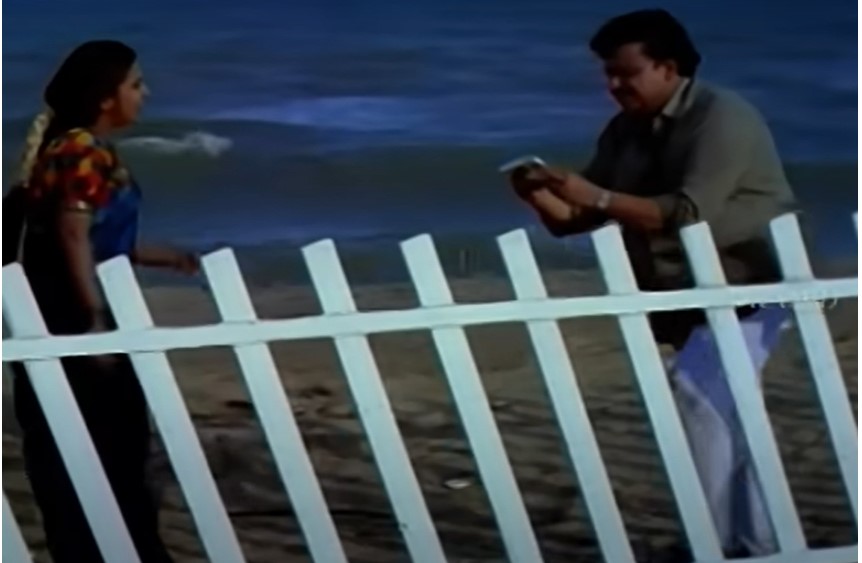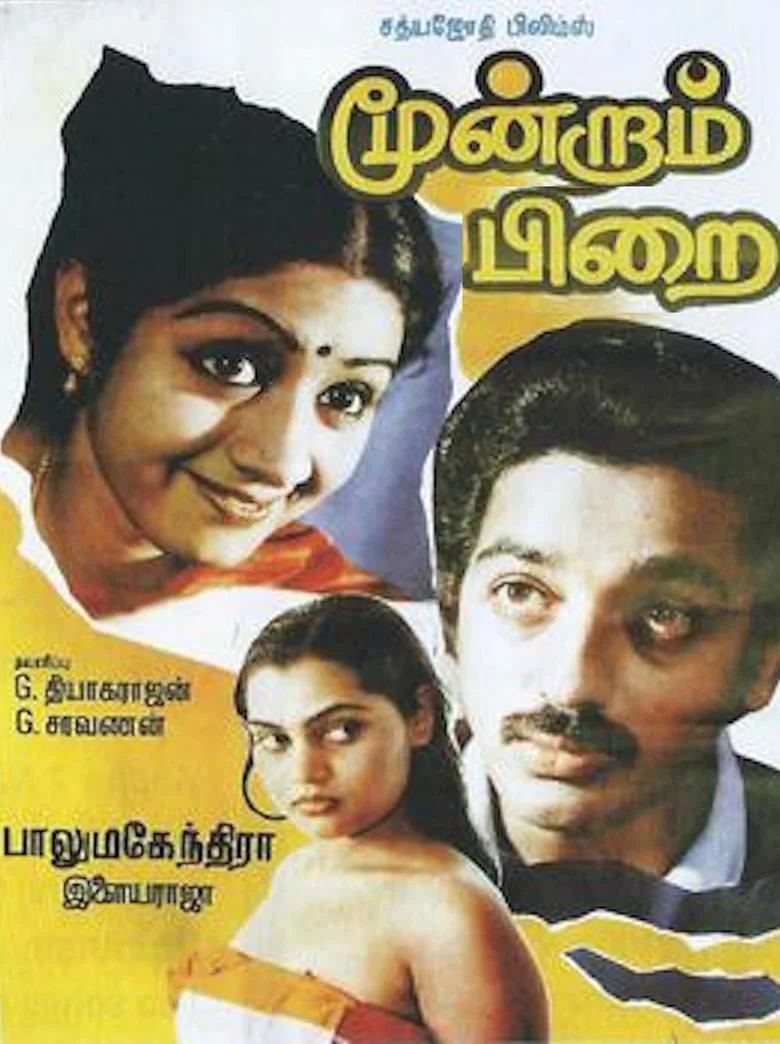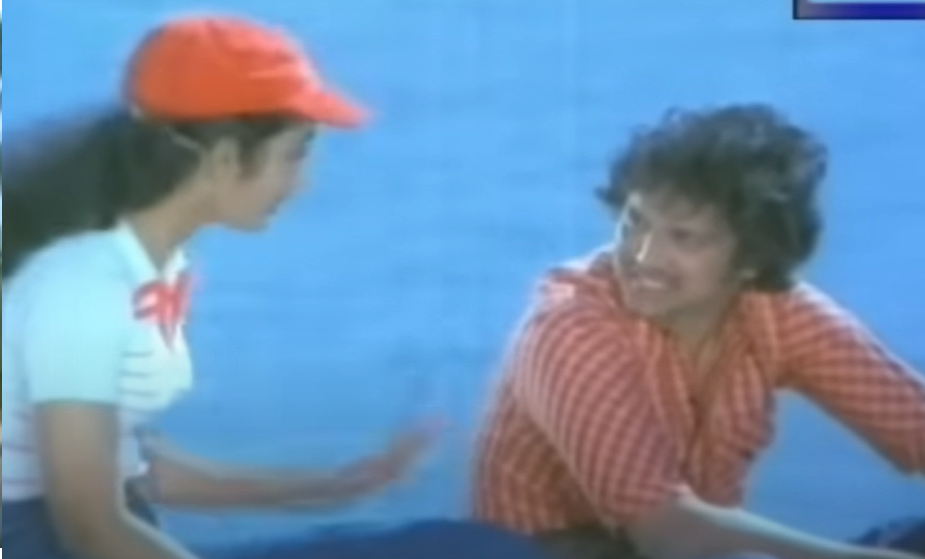Keladi Kanmani (1990), directed by Vasanth, presents a poignant tale of love, family, and sacrifice within the backdrop of south Indian society. While the film has been praised for its strong performances and emotional depth, it has its critics for its pacing and rather familiar narrative tropes.
One of the film’s strongest aspects is its performances. S.P. Balasubrahmanyam as ARR and Radhika Sarathkumar as Saradha Teacher deliver captivating portrayals as the central characters, bringing depth and authenticity to their roles. Their chemistry on screen is palpable, enhancing the believability of their characters’ relationship and struggles.
The film’s exploration of complex familial dynamics and societal expectations is another highlight. It delves into themes of duty, tradition, and personal freedom, offering insights into the challenges faced by individuals caught between familial obligations and personal desires.
The father-daughter relationship between ARR (played by SPB) and Anu (played by Anju as adult) serves as a poignant and central theme, adding layers of emotional depth to the narrative. ARR, portrayed by the legendary S.P. Balasubrahmanyam, shares a special bond with his daughter beautifully portrayed by Anju Aravind. Their relationship is characterized by love, respect, and a profound sense of familial duty.
The father-daughter relationship between ARR (played by SPB) and Anu (played by Anju as adult) serves as a poignant and central theme, adding layers of emotional depth to the narrative. ARR, portrayed by the legendary S.P. Balasubrahmanyam, shares a special bond with his daughter beautifully portrayed by Anju Aravind. Their relationship is characterized by love, respect, and a profound sense of familial duty.
As a single father, ARR has dedicated his life to providing for Anu and ensuring her happiness. He is not only a father figure but also a friend and confidant to her always there to offer guidance and support. Despite his own personal desires and struggles, ARR prioritizes daughter’s well-being above all else, showcasing the selflessness and unconditional love of a parent.
Anu, in turn, deeply values her father’s presence in her life and cherishes the bond they share. She respects his decisions and seeks his approval, highlighting the strong sense of trust and admiration she holds for him. However, like any parent-child relationship, their dynamic is not without its challenges. Anu’s initial reluctance to accept her father’s budding romance with Sarada teacher (immortalised by Radhika) reflects her protective instincts and fear of losing their close-knit bond. The portrayal of ARR and Anu’s relationship iserves as a heartwarming tribute to the enduring power of familial love and the unbreakable ties that bind parents and children together.
At a time when movies have become louder, more fast-paced and so stereotyped, Keladi Kanmani stands out as an example of that kind of fine, unhuried and heartwarming cinema that is neither arthouse nor commercial but serves the audience their money’s worth.
Janakaraj as Adaikalam Sir portrays a pivotal supporting role that adds both comedic relief and emotional depth to the narrative. His character serves as a close friend and confidant to the protagonist ARR. Janakaraj’s portrayal injects moments of lightheartedness and camaraderie into the story, providing a counterbalance to the more serious themes explored. Despite his jovial nature, Janakaraj’s character also offers valuable insights and support to his friend during pivotal moments of the plot, demonstrating loyalty and friendship.
However, “Keladi Kanmani” is not without its flaws. Some critics have pointed out that the film’s pacing can feel slow at times, particularly in the second half. Certain scenes and subplots may seem repetitive or predictable, detracting from the overall impact of the narrative.
Additionally, while the film tackles important themes, its approach can sometimes feel formulaic or overly melodramatic. The resolution of conflicts and the character arcs may follow conventional paths, limiting the film’s ability to offer fresh perspectives or surprises.
In terms of technical aspects, the film’s music, composed by Ilaiyaraaja, was widely praised for its emotional resonance and melodic beauty. If you’re an 80’s or 90’s kid interested in music in TN, you couldn’t have gone through childhood without trying to sing ‘Mannil Intha Kaadal Andri’ holding your breath.
The cinematography too effectively captures the essence of the story, showcasing both the beauty and the challenges of the characters’ lives.
Overall, “Keladi Kanmani” is a heartfelt drama that resonates with audiences for its compelling performances and exploration of universal themes. While it may not break new ground in terms of narrative structure or pacing, its emotional depth and sincerity make it a worthwhile watch for fans of Indian cinema.
At a time when movies have become louder, more fast-paced and so stereotyped, Keladi Kanmani stands out as an example of that kind of fine, unhuried and heartwarming cinema that is neither arthouse nor commercial but serves the audience their money’s worth.



